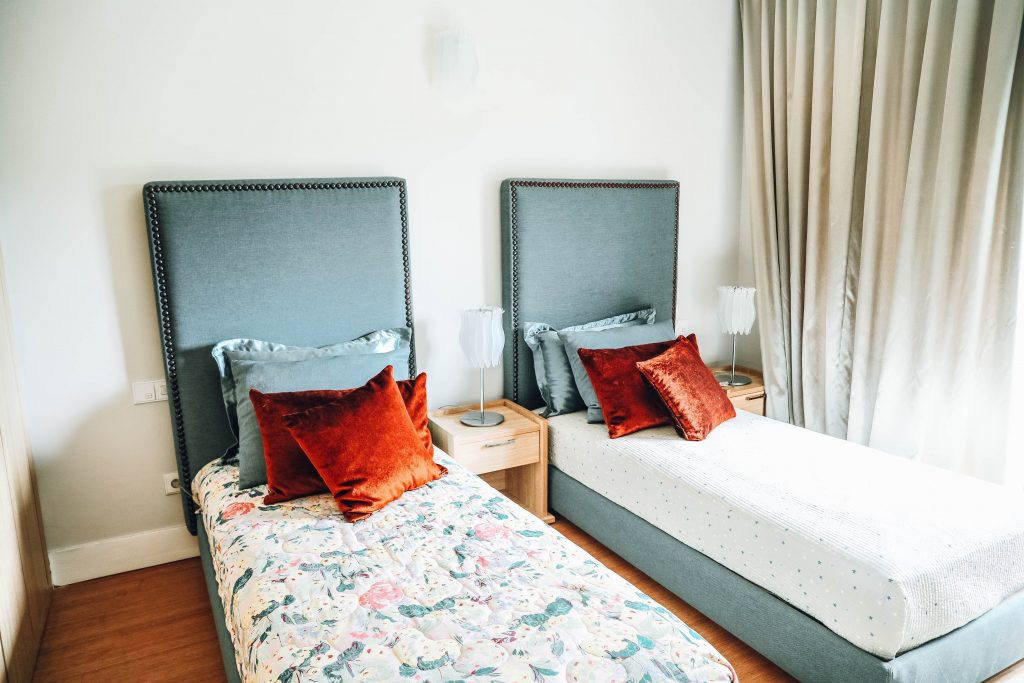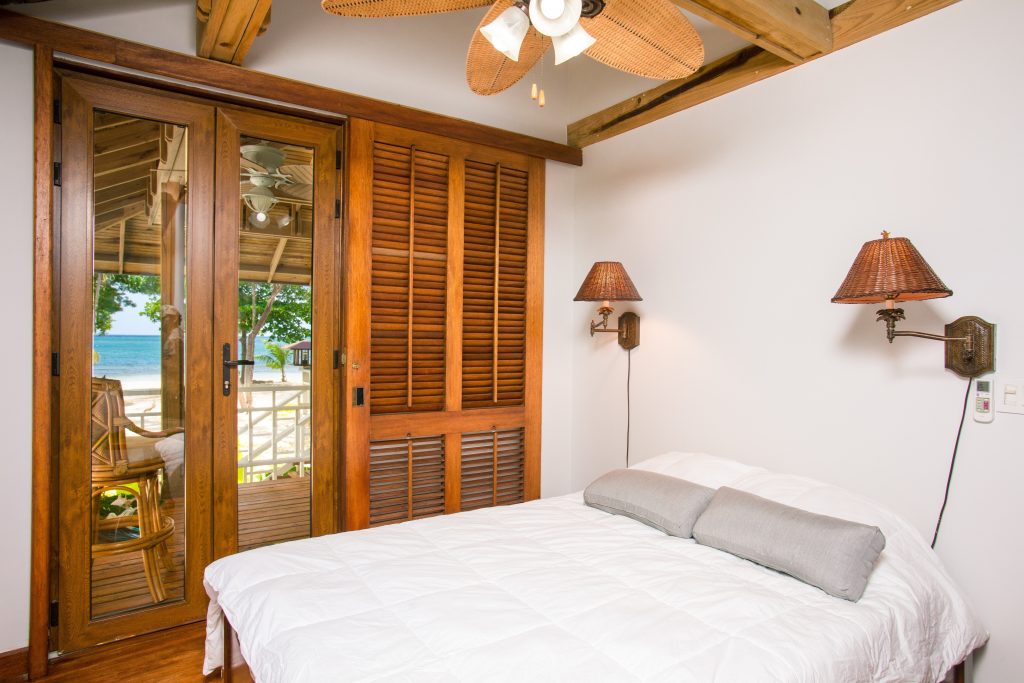Hotel chambermaids are also known as hotel housekeepers or room attendants.
This position is one of the most occupied in the hospitality industry.
As you will find out from the guide below, the tasks of a hotel chambermaid include maintaining pleasant appearances and experiences for guests.
With proper work history, skills, and knowledge, these workers can find ample opportunities.
Article Table of Contents
What Does a Hotel Chambermaid Do
The functions of a hotel chambermaid include sanitation, affording comfort for tourists and travelers, and ambassador for the hotel and its brand.
The skills chambermaids should possess include stamina, coordination, dexterity as well as patience and positive attitude towards guests, co-workers, and supervisors.
Since hotel chambermaids deal with physical demands, they should maintain a friendly and positive demeanor.
Responsibilities
- Use disinfectants and other cleaning agents on tubs, counters, toilets, windows, mirrors, and other surfaces in rooms and common areas of the hotel.
- Vacuum floors in lobbies, hallways, and rooms.
- Remove and replace used or dirty sheets, towels, and other linens in bathrooms and rooms.
- Sweep and mop the floors in dining areas, kitchens, corridors, rooms, and lobbies.
- Alert guests, staff, and management of wet floors, spills, and other areas to avoid as well as potential hazards.
- Remove dust from lamps, blinds, furniture, curtains, corners of walls, and window and door frames.
- Flip cushions on chairs and couches as well as mattresses.
- Inform lead hotel chambermaids, hotel management, or front desk staff of broken or malfunctioned televisions, bulbs, fixtures in rooms or other areas.
- Empty refrigerators, trash cans, and ashtrays used by departing guests.
Essential Skills
Customer service:
Hotel chambermaids should be able to respond to guests courteously.
They may receive questions about the hotel, requests for various items, or complaints about room conditions.
Besides, chambermaids should have an inviting, friendly and welcoming attitude toward guests.
They should also avoid conflicts with coworkers or guests in front of guests.
Detail-oriented:
Hotel chambermaids should be detail-oriented while cleaning.
Guests can get a poor image and dissatisfied experience from small trash, stains, slight dust, or grout in bath tiles or behind faucets.
They should also supply the right number of towels, washcloths, and toilet paper for the rooms.
Additionally, they should arrange the pillows, cushions, and linens in a straight or otherwise meticulous manner.
Math:
Hotel chambermaids should be able to measure liquid units to use cleaning agents safely and effectively.
Many cleaning agents should be mixed with something else to dilute ammonia or bleach.
Besides, with math skills, chambermaids can handle money and provide change when necessary.
Physical:
Hotel chambermaids need stamina and strength to push carts with mops, brooms, and cleaning supplies and walk a lot.
They should also use vacuums, mops, and brooms.
They do various physical movements such as reaching, squatting, bending, and other repetitive motions.
Also, in some areas or during summer months, chambermaids should work in hot or humid weather.
How to Become a Hotel Chambermaid
Hotel chambermaids don’t necessarily need specific training or education.
However, community and technical schools, as well as some companies, provide training in essentials of cleaning hotel spaces and the hospitality industry.
This training helps develop skills required by hotel and resort companies from chambermaids.
Training and Qualifications
Usually, hotel owners and companies don’t need more than just a high school diploma.
As the O*NET reports, about 64% of the Maids and Housekeepers sector, including hotel workers, have a high school diploma or GED.
About 35% of them don’t have either.
Even though formal education isn’t required, some community colleges offer certifications in hotel housekeeping.
Such programs cover subjects like sanitation, types of tools and supplies, branding of hotels and resorts, and customer service.
Hotel chambermaids can also take hospitality and tourism programs at community colleges.
Hotel companies also train new hires on their standards for common areas and rooms as well as amenities at their properties.
New chambermaids can also partner with more experienced employees at the beginning.
Experience
Hotel chambermaids need experience in housekeeping, especially in hotels, motels, and similar establishments.
Those who wish to work for chain or high-end hotels or resorts can gain experience at independently-owned or smaller hotels, motels, or lodges.
While working in other settings besides hotels, applicants can demonstrate their skills in cleaning and customer service.
They may enter the hospitality area with experience in office, commercial, residential, or industrial cleaning services.
Those employed at schools or commercial and industrial settings usually clean kitchen floors and dishes.
They also measure liquids for cooking and mixing cleaning agents, as well as understand the sanitation principles.
Other relevant experience can be obtained at restaurants, and in the position of a janitor in an office, school, or retail establishment.
Working Hours
Hotel chambermaids can work full-time, part-time and temporary positions.
Six out of ten Maids and Housekeepers workers work only part-time.
There is also seasonal work which is common at resorts or vacation areas.
Another one out of five work performs irregular work assignments because of the weather, demands by hotels and resorts, and the contract terms with temporary employment.
Hotel chambermaids mostly work shifts.
The most common shifts are in the morning.
At that time, they should prepare the rooms for check-ins and clean the rooms while guests are out for tourists or other activities.
Career Outlook
The employment in the “Maids and Housekeepers” sector should increase by 5-9% by 2026.
This means 202,000 new job openings.
A significant number of job opportunities should become available in the hospitality industry as well.
According to the United States Department of Commerce and the International Trade Association, the revenue of the travel and tourism industry was $1.5 trillion in 2016.
Directly or indirectly, this industry employed one of every 18 workers in the US.
According to IBIS World, construction of hotels increased by 12.3% per year between 2012 and 2017.
Because of the greater discretionary incomes, it is predicted to expand continuously.
With experience and great performance, hotel chambermaids can advance to higher positions such as supervisors of chambermaid crews, housekeeping department managers, and even managerial positions at hotels.
Conclusion
The employment opportunities for chambermaids are quite positive, considering the rise in the hotel and travel sectors.
There are temporary, part-time and seasonal positions available, as the demand for housekeeping staff increases with the weather and vacation times.
Hotel chambermaids can expect physical pressures and demand from guests, but with experience, they can advance to higher positions in hotel companies and the hospitality industry.

